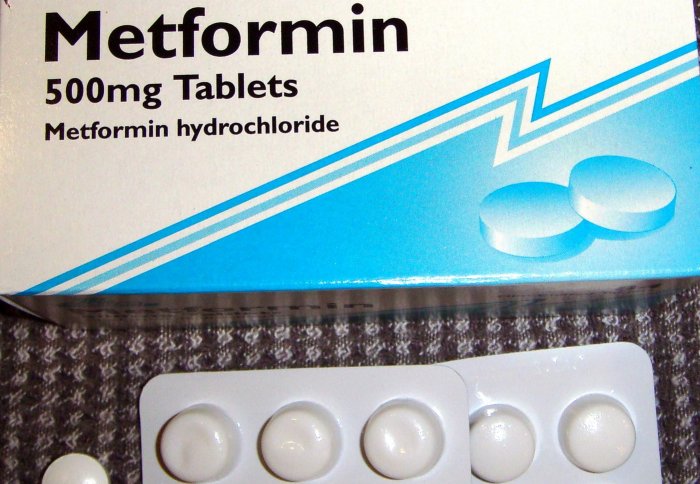Study reveals the gut's role in effects of diabetes drug
by Sam Wong

A new study has shed light on how the diabetes drug metformin works to lower blood glucose, offering clues that could help design better treatments.
Around 350 million adults have type 2 diabetes worldwide, and the number is projected to increase by 200 million by 2035. Metformin is the most widely used drug to treat type 2 diabetes, taken by 80 million users worldwide, but exactly how it works has remained unclear.
The new study, which looked at metformin’s effects in rats, showed that the gut is responsible for sensing the drug and sending signals to the brain, which then signals to the liver to reduce glucose production.
This knowledge could help scientists design more effective treatments with fewer side effects. Metformin can have unpleasant side effects like nausea and diarrhoea, which could perhaps be avoided by treatments that target the gut more selectively.
The study was carried out by researchers at Imperial College London and the University of Toronto and published in Nature Medicine.
Professor Guy Rutter, who led the group at Imperial’s Department of Medicine, said: “These findings open a whole new therapeutic avenue for the treatment of type 2 diabetes. Metformin is an important drug that helps many diabetic people control their blood sugar levels, but it’s not suitable for everyone, it has toxic effects on some organs. By understanding where it acts in the body, we might be able to design new drugs or new delivery systems to reduce the side effects.”
Metformin works primarily by raising levels of the chemical AMP in cells, which turns on an enzyme called AMPK. Until now, scientists have generally believed that metformin suppresses glucose production by acting directly on the liver. The researchers found that inhibiting AMPK in the intestine blocks the effect of on glucose production when metformin is delivered to the intestine in rats. This showed that AMPK in gut cells were critical to sensing the drug. Further experiments showed that nerves carrying signals from the gut to the brain and the brain to the liver are responsible for bringing about the effects on glucose production.
The study was funded by the Canadian Institutes of Health Research.
Reference: F.A. Duca et al. 'Metformin activates a duodenal Ampk-dependent pathway to lower hepatic glucose production in rats' Nature Medicine, 2015. http://dx.doi.org/10.1038/nm.3787
Article text (excluding photos or graphics) © Imperial College London.
Photos and graphics subject to third party copyright used with permission or © Imperial College London.
Reporter
Sam Wong
School of Professional Development